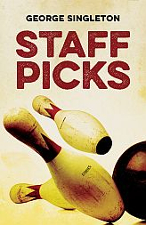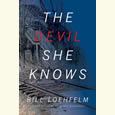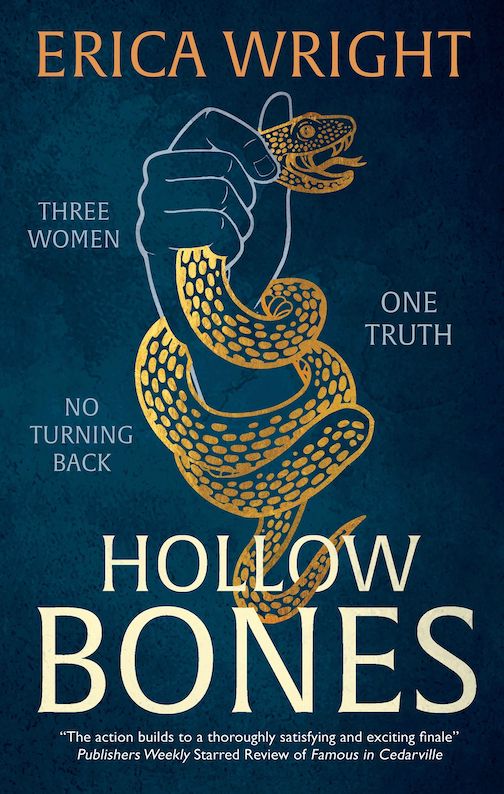Got a Story About That, Too
With Staff Picks, George Singleton once again proves his mastery of the comically absurd
A librarian and a professional bowler fall in love during an endurance contest to win a deluxe RV. A grieving father welcomes a pair of trick-or-treaters dressed as the thieves crucified with Jesus. A failed professor in recovery encounters the divine while serving tacos at a rural community center. A man worries that his wife’s obsession with true-crime television may mean that she’s plotting to murder him.
 “You can point a gun at someone’s head and say, ‘I won’t hurt you,’ and they’ll quit peeing in their pants,” George Singleton writes in Staff Picks, the collection in which these farcical scenarios appear. “I got a story about that, too.”
“You can point a gun at someone’s head and say, ‘I won’t hurt you,’ and they’ll quit peeing in their pants,” George Singleton writes in Staff Picks, the collection in which these farcical scenarios appear. “I got a story about that, too.”
Indeed, anyone who has followed the author since his debut collection, These People Are Us, must surely marvel at Singleton’s restless imagination and his unique characters, a collection of Southern grotesques even Flannery O’Connor would envy. With Staff Picks, Singleton perfects his fusion of rapid-fire humor, biting satire, and tragicomic epiphany. These stories read like a mash-up of Robin Williams and James Joyce at a roadside carnival after a fifth of bourbon.
Singleton is well-known to followers of Southern writing for his five-laughs-per-paragraph comic delivery and his obsession with Southern oddballs (or, what we like to call around here, the neighbors). This reputation obscures the depth and pathos underlying his humor. It’s often been said that the funniest people are also the saddest, and Singleton’s characters have in common a sense of tragic displacement and a yearning for belonging or rootedness. It’s a feeling that seems to come naturally to the inhabitants of places like Steepleburg (the faintly fictionalized version of Singleton’s adopted home city of Spartanburg, South Carolina, where he teaches English and creative writing at Wofford).
 The comparisons to Joyce and O’Connor are apt in other ways, as well. Singleton shares both writers’ love-hate relationship with a deeply flawed home in which his characters are native outsiders. In this sense, Singleton’s oddballs and wackos are not objects of ridicule but of bemusement or even admiration. This is the South of strip-malls, cheap beer, and Confederate flags, but it presents a troublingly universal microcosm of a world in which the absurd has become commonplace—and attempting to adhere to the laws of logic and rationality increasingly feels like an exercise in self-induced psychosis. “If you talk about something too much, you might make it real,” Singleton writes in the title story. Too late, it seems. Real life is already only a few degrees short of the surreal world of George Singleton’s stories.
The comparisons to Joyce and O’Connor are apt in other ways, as well. Singleton shares both writers’ love-hate relationship with a deeply flawed home in which his characters are native outsiders. In this sense, Singleton’s oddballs and wackos are not objects of ridicule but of bemusement or even admiration. This is the South of strip-malls, cheap beer, and Confederate flags, but it presents a troublingly universal microcosm of a world in which the absurd has become commonplace—and attempting to adhere to the laws of logic and rationality increasingly feels like an exercise in self-induced psychosis. “If you talk about something too much, you might make it real,” Singleton writes in the title story. Too late, it seems. Real life is already only a few degrees short of the surreal world of George Singleton’s stories.
In “Eclipse,” a formerly blind man miraculously healed by staring at a solar eclipse remarks, “I don’t know about y’all, but I’m tired of seeing nothing but bad, bad, bad. Poverty. Killing. Illiteracy. More poverty. Next eclipse? I’m going to stare right up into it, get rid of what I don’t want to witness.” But even if you aren’t able to see it, the bad remains. Perhaps the only choice left is to laugh—generously, one hopes, more often than bitterly. If laughter is a consolation, or even a form of reassurance, one is not likely to find a more encouraging place to turn than the stories of George Singleton.
[This article originally appeared on March 14, 2019.]

Ed Tarkington’s debut novel, Only Love Can Break Your Heart, was published by Algonquin Books in January 2016. He lives in Nashville.


